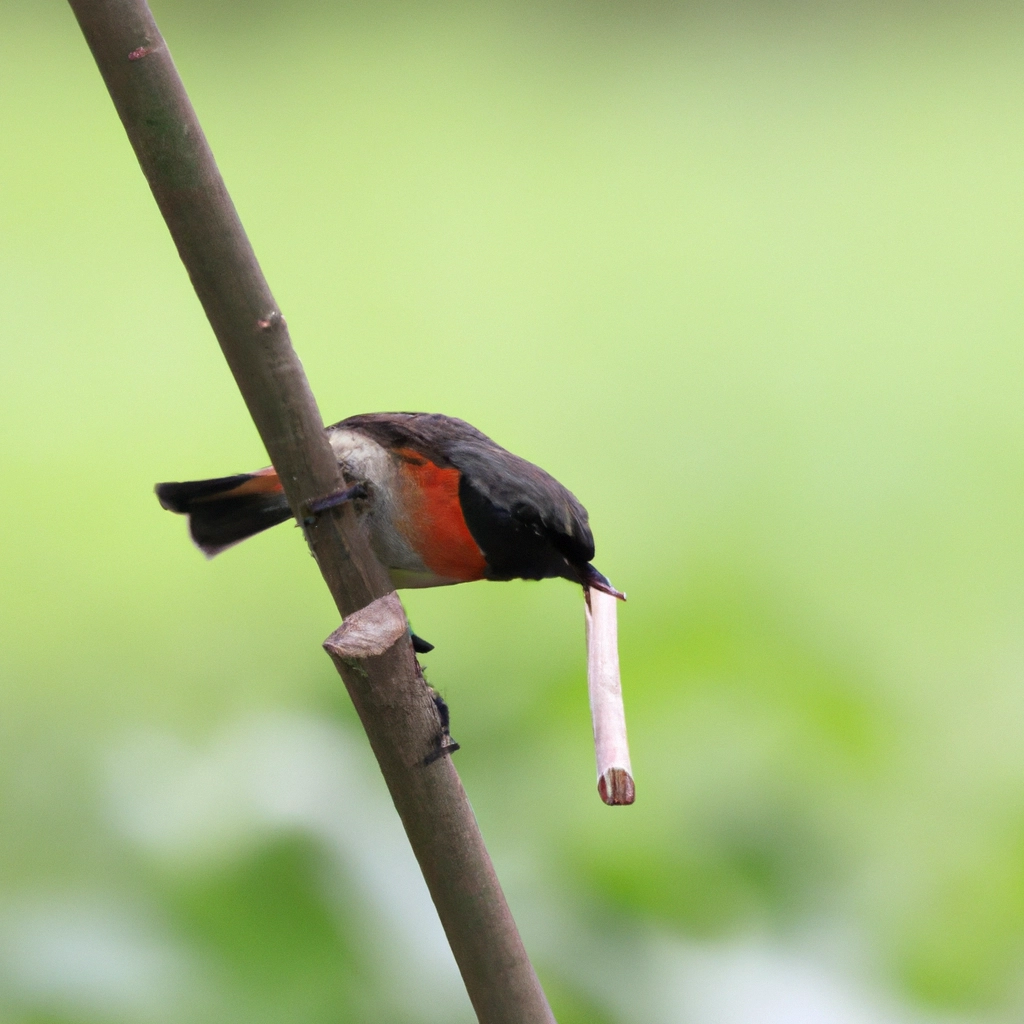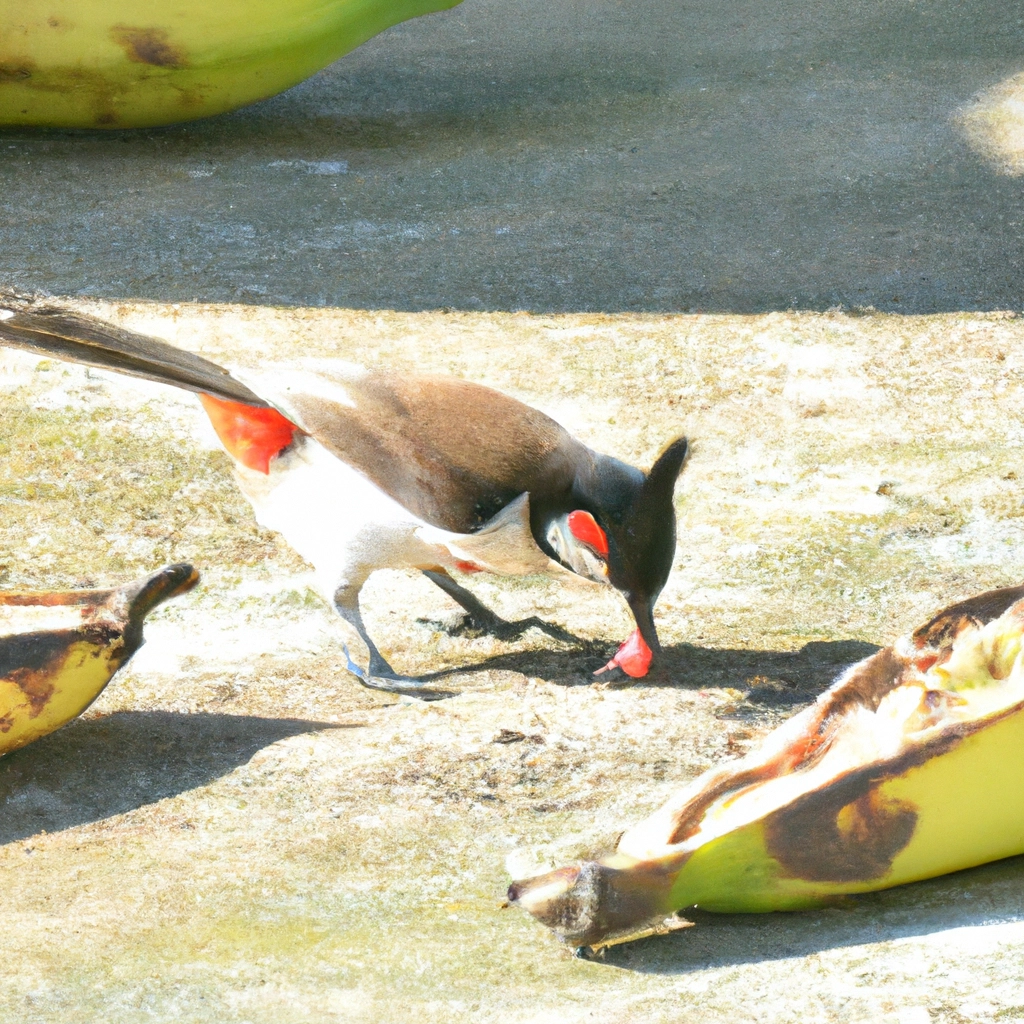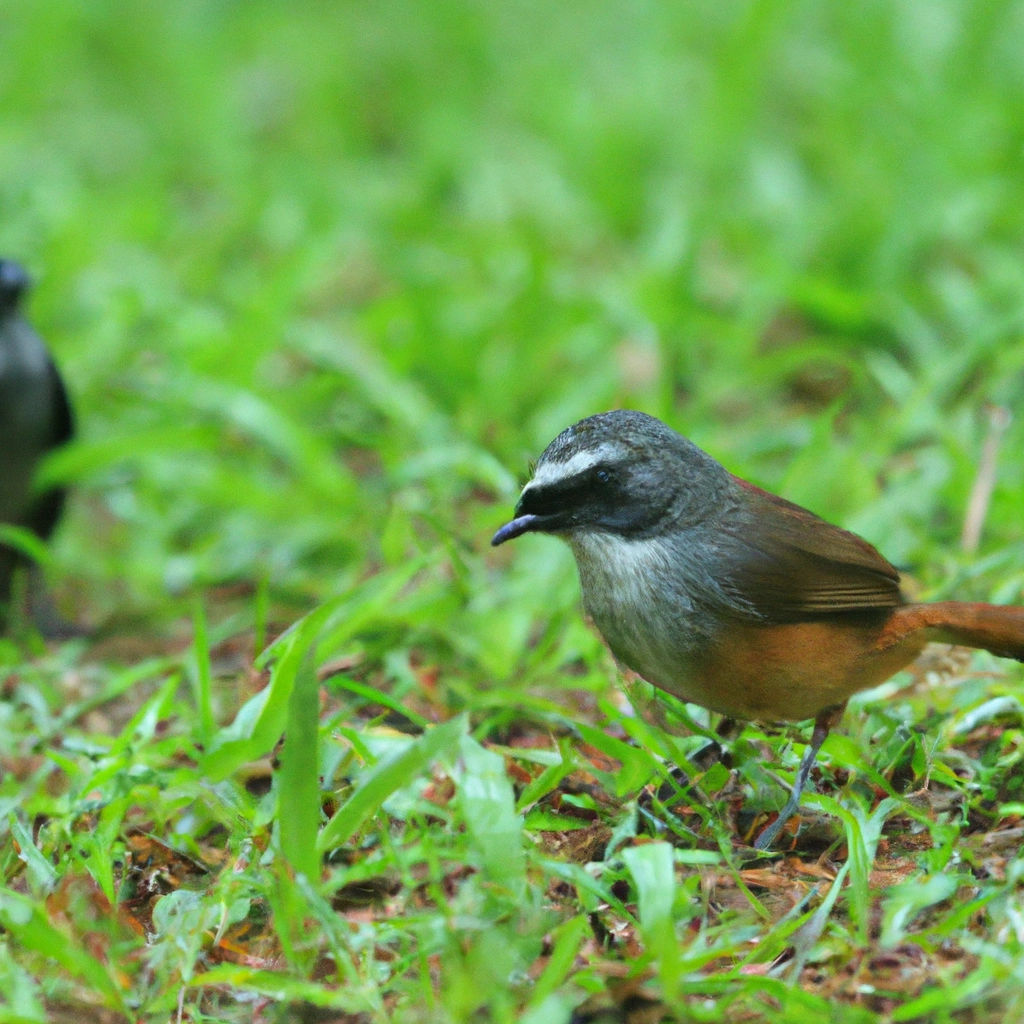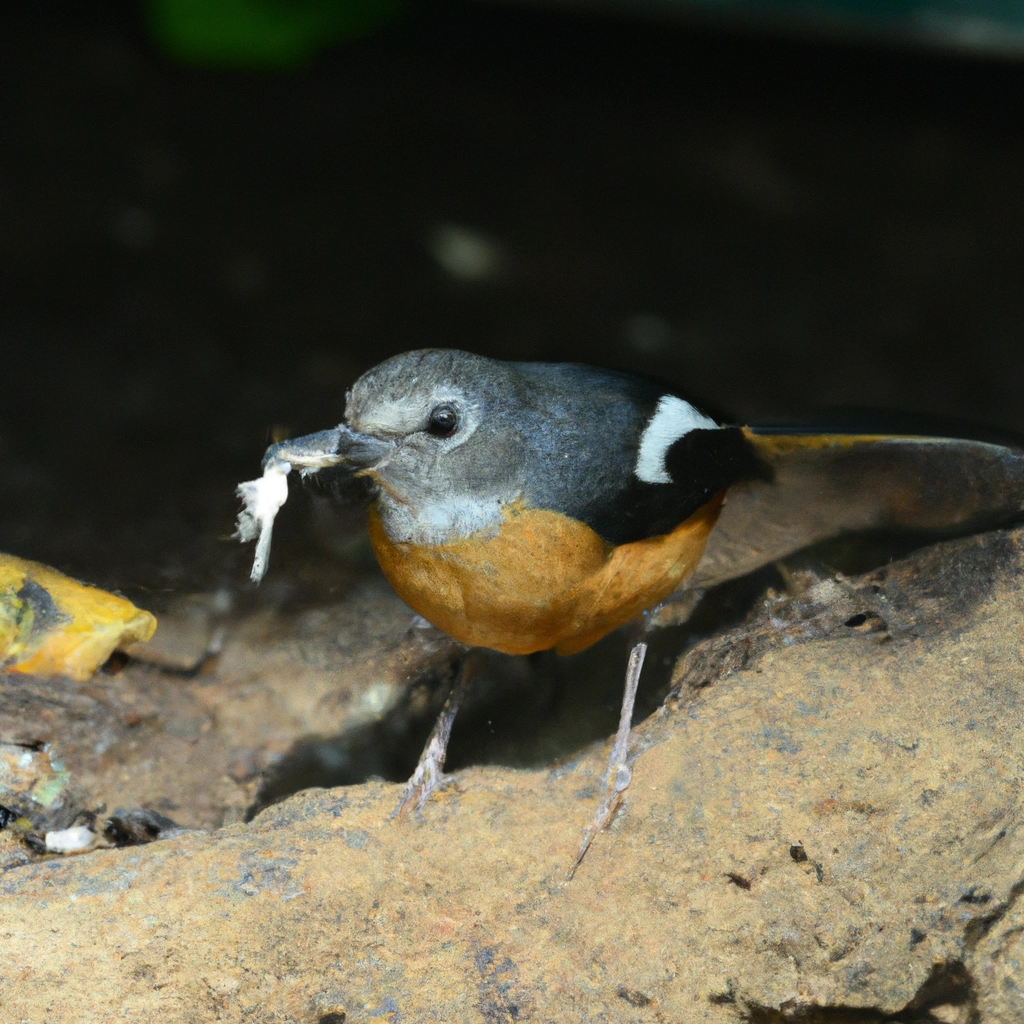| Food | Harmful Effects |
|---|---|
| Avocado | Can cause respiratory distress and heart failure |
| Chocolate | Contains theobromine, toxic to birds’ systems |
| Alcohol | Causes intoxication and can lead to death |
| Caffeine | Disrupts their heart rhythm and can be fatal |
| Salty Foods | Can lead to excessive thirst and urination, and sodium ion poisoning |
There’s something truly special about nurturing nature’s little aviators. For me, sharing a moment with the local winged wonders always warms my heart. But with great bird-watching comes great responsibility – especially when it comes to snack time. Not all pantry picks are safe for our feathered friends; some can even be downright dangerous. So, let’s dive in and uncover the dos and don’ts of bird-friendly treat tossing!
Feeding birds can feel like a scene straight out of a Disney movie, but it’s not all about the fairytale. Understanding what’s harmful to birds is just as important as any other act of kindness we can perform for the environment. It pays to be informed because the wrong food can cause health problems or worse for our sky-passing pals.
I’ve had my fair share of bird-feeding boo-boos over the years, leading to some valuable lessons learned. Join me as we navigate through the murky waters of what not to feed the birds, and what to offer instead for a guilt-free and joy-filled experience.
Foods to Avoid Feeding Birds
Bread and Crackers
Like many, I’ve witnessed the timeless act of tossing bread crumbs to ducks and pigeons at local parks. But did you know that this common practice isn’t a yellow-brick road to birdie bliss? In truth, bread, crackers, and other similar snacks lack the essential nutrients our winged companions need and can even lead to health issues.
Feeding them bread is akin to filling their tummies with empty calories, making them feel full without delivering the nutritional goods. Over time, this can result in a diet deficient in the vitamins and minerals required for them to thrive. That’s why when it comes to our bird feeding habits, it’s critical to opt for substance over simplicity.
Packing my bag with healthier alternatives instead of a loaf of bread has become a personal ritual. It’s all in the name of ensuring that feathered diners get the gourmet treatment they deserve, as well as a side order of good health!
Salty and Processed Foods
It’s not just us humans who need to watch our salt intake; these seasoning sprinkles can spell trouble for birds too. I’ve seen firsthand the discomfort and distress salty foods can cause to our avian counterparts. It’s a sight that certainly sticks with you and reinforces the need to be mindful of our treat choices.
Salty snacks and processed foods that we might nibble on without a second thought can lead to dehydration and kidney issues in birds. Therefore, we must be especially careful to keep our savory munchies to ourselves.
Thanks to these experiences, my bird feeding adventures have taken a turn towards the all-natural and the salt-free. Swapping out chips and pretzels for healthier options isn’t just better for me; it’s a win for bird wellness too!
Chocolate
A little while back, I left some chocolate treats out inadvertently, and wouldn’t you know it, in swooped a curious feathered visitor. The resulting panic had me speed-reading articles about chocolate’s effects on birds. Spoiler alert: it’s not a sweet deal for them.
Chocolate contains theobromine and caffeine, which are hazardous to many animals, birds included. These substances can lead to dire health conditions and even prove fatal to our unsuspecting friends. Thankfully, I intervened in time, and the bird flew off unscathed. The scare, however, was a potent reminder to keep such temptations well out of beak reach.
Since that incident, anything chocolatey stays indoors and far from the flight path of my garden guests. It’s become my sworn duty to ensure treats are free of toxins and trouble, protecting my avian amigos from the unseen dangers of delectable delights.
Avocado
What’s a healthy brunch without avocado toast, right? Well, let me tell you about the time my pet bird caught a taste. It quickly went from trendy treat to tummy trouble. Avocado contains persin, a substance that’s toxic to birds. It can induce heart problems, respiratory distress, and in severe cases, death.
After careful observation and a quick dash to the vet, my feathery buddy pulled through. It was a clear signal to reassess my sharing-is-caring philosophy. These days, avocados stay on my plate and well away from my winged compatriots.
Learning from such experiences has been a game-changer. Now I’m dedicated to spreading the word and ensuring no other bird enthusiast has to face a similar fright. It’s not just about eliminating risk; it’s about fostering a deeper understanding and respect for the dietary needs of our sky-soaring pals.
Caffeine and Alcohol
All it took was an unguarded cup of coffee for a bird to dip its beak into the world of caffeine. The aftermath wasn’t pretty and drove home the fact that birds and buzzy beverages don’t mix. These stimulants can cause cardiac malfunctions, hyperactivity, and even seizures in birds.
And when it comes to alcohol, the message is even clearer: just don’t. Even small amounts can have a devastating impact on a bird’s system. Witnessing these effects can be heart-wrenching and turned me into a veritable hawk when it comes to supervising what’s in beak’s reach during outdoor gatherings.
My lesson learned is one I’ve sworn to uphold: keep the caffeinated drinks and boozy libations for the humans and have plenty of bird-safe water available for our feathered guests. Keeping watch over our winged friends’ wellbeing is as important as ensuring our enjoyment during backyard barbecues or breezy picnics.
Safe Alternatives for Feeding Birds
Seeds and Nuts
It’s nothing short of magical to watch birds relish in a feast of seeds and nuts. That moment when you scatter a mix and they swoop down in delight is truly a highlight of my day. These food items are chock-full of the good stuff – proteins, fats, and fibers that birds need to maintain their vibrant energy.
The joy for me isn’t just in watching them eat but knowing I’m providing food that supports their health and well-being. Seeing birds hop around with plump sunflower seeds or cheekily pecking at a hanging nut feeder fills me with pride. I feel like a Michelin-starred chef for the avian world.
Finding the right seed and nut blend has become a delightful hobby. I take pleasure in researching and curating the ideal menu because, at the end of the day, feeding the birds isn’t just a pastime; it’s also a responsibility to nurture nature’s fliers with the best of what we can offer.
Fruits and Vegetables
I still remember the first time I observed a bird pecking away at a slice of apple I’d left out. The wonder in its eyes mirrored my own as we shared a moment of mutual amazement. Fruits and vegetables aren’t just for us humans; they’re wonderful options to include in your bird-feeding repertoire.
They provide crucial vitamins and minerals, offering a rich diet that promotes the full spectrum of avian health. And there’s no shortage of options! From greens like lettuce to goodies like strawberries and apples, there’s an entire orchard and veggie patch worth exploring.
I’ve made it my mission to plant bird-friendly flora around my home. It provides natural and fresh food sources for the neighborhood flyers, and there’s an ineffable fulfillment in fostering an environment where wildlife can thrive on the bounty that nature intended.
Bringing this journey of do’s and don’ts to a close, it’s vital to remember that mindful feeding goes beyond the simple act of sharing our leftovers. It’s about ensuring that our feathered friends fly away healthier and happier than when they arrived.
I encourage everyone to spread the word, much like seeds cast to the wind. Share these insights, educate fellow bird enthusiasts, and revel in the knowledge that together, we’re creating a better world for birds one snack at a time. It’s not just about the love of birds; it’s about the legacy we leave in the skies above.
Frequently Asked Question
-
What types of human food should be avoided when feeding birds?
Some types of human food that should be avoided when feeding birds include items high in salt, sugar, and artificial additives. Additionally, it’s important to avoid feeding birds foods that are spoiled or moldy, as these can be harmful to their health. It’s best to stick to birdseed, fruits, and vegetables that are safe for birds to consume in order to ensure their well-being.
Feeding birds the wrong types of human food can lead to health issues and may also attract unwanted pests, so it’s important to be mindful of the quality and nutritional value of the foods you offer to them. By providing a balanced and appropriate diet, you can help support the overall health and happiness of the birds that visit your feeding area.



